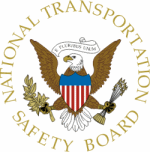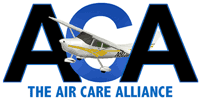Sat, Jun 12, 2010
Board Says Passengers Should Be Told They Are Not Flying
Commercial
 The NTSB has issued three
recommendations directed specifically at the Air Care Alliance
which could have ramifications for any organization offering
charitable flights.
The NTSB has issued three
recommendations directed specifically at the Air Care Alliance
which could have ramifications for any organization offering
charitable flights.
The board recommends that The Air Care Alliance require
voluntary pilot organizations to verify pilot currency before every
flight. It further says that the voluntary pilot organization
should be required to inform passengers, at the time of inquiry
about a flight, that the charitable medical flight would not be
conducted under the same standards that apply to a commercial
flight (such as under 14 Code of Federal Regulations Part 121 or
Part 135).
The final recommendation is that all voluntary pilot
organizations to work with ACA and other charitable medical
transport organizations to develop and disseminate written safety
guidance, best practices, and training material for volunteer
pilots who operate charitable patient transport flights under 14
Code of Federal Regulations Part 91. It further would require all
voluntary pilot organizations to implement those best practices and
training. The information should address, at a minimum,
aeronautical decision-making; proper preflight planning; pilot
qualification, training, and currency; and self-induced
pressure.
 The recommendations stem from four
accidents in 2007 and 2008 where in all but one case a passenger on
board a charitable medical flight was killed. The pilot was killed
in the fourth incident en route to picking up his passengers. All
flights were arranged by ACA members, and in each case, pilot
proficiency was cited either the probable cause or a contributing
factor to the accident. In its letter outlining the recommendations
to the ACA, the NTSB noted that the pilots in these accidents were
experienced and likely should have been aware of the risks
associated with taking off with excessive tail or crosswinds or
flying into deteriorating weather. Although the NTSB could not
determine why these experienced pilots made the inappropriate
decisions that led to the accidents, the pilots may have been
subject to self-induced pressure to start or complete the flight
because of their passengers’ serious medical conditions.
The recommendations stem from four
accidents in 2007 and 2008 where in all but one case a passenger on
board a charitable medical flight was killed. The pilot was killed
in the fourth incident en route to picking up his passengers. All
flights were arranged by ACA members, and in each case, pilot
proficiency was cited either the probable cause or a contributing
factor to the accident. In its letter outlining the recommendations
to the ACA, the NTSB noted that the pilots in these accidents were
experienced and likely should have been aware of the risks
associated with taking off with excessive tail or crosswinds or
flying into deteriorating weather. Although the NTSB could not
determine why these experienced pilots made the inappropriate
decisions that led to the accidents, the pilots may have been
subject to self-induced pressure to start or complete the flight
because of their passengers’ serious medical conditions.
The NTSB has asked for an initial response from the ACA within
90 days addressing the actions that have been taken, what plans
have been made to implement the recommendations.
More News
Convective SIGMET A weather advisory concerning convective weather significant to the safety of all aircraft. Convective SIGMETs are issued for tornadoes, lines of thunderstorms, e>[...]
Aero Linx: United Flying Octogenarians WELCOME to a most extraordinary group of aviators, the United Flying Octogenarians (UFO). Founded in 1982 with just a handful of pilots, we h>[...]
Pilot’s Decision To Attempt Takeoff With Frost Covering The Airplane’s Wings Analysis: The pilot of the light sport airplane was preparing to depart for a cross-country>[...]
“We’ve paid for the cable line’s repair for the customer and have apologized for the inconvenience this caused them...” Source: Some followup info from an A>[...]
Coupled Approach An instrument approach performed by the aircraft autopilot, and/or visually depicted on the flight director, which is receiving position information and/or steerin>[...]
 ANN's Daily Aero-Term (12.01.25): Convective SIGMET
ANN's Daily Aero-Term (12.01.25): Convective SIGMET ANN's Daily Aero-Linx (12.01.25)
ANN's Daily Aero-Linx (12.01.25) NTSB Final Report: Remos Aircraft GmbH Remos GX
NTSB Final Report: Remos Aircraft GmbH Remos GX Aero-News: Quote of the Day (12.02.25)
Aero-News: Quote of the Day (12.02.25) ANN's Daily Aero-Term (12.02.25): Coupled Approach
ANN's Daily Aero-Term (12.02.25): Coupled Approach




